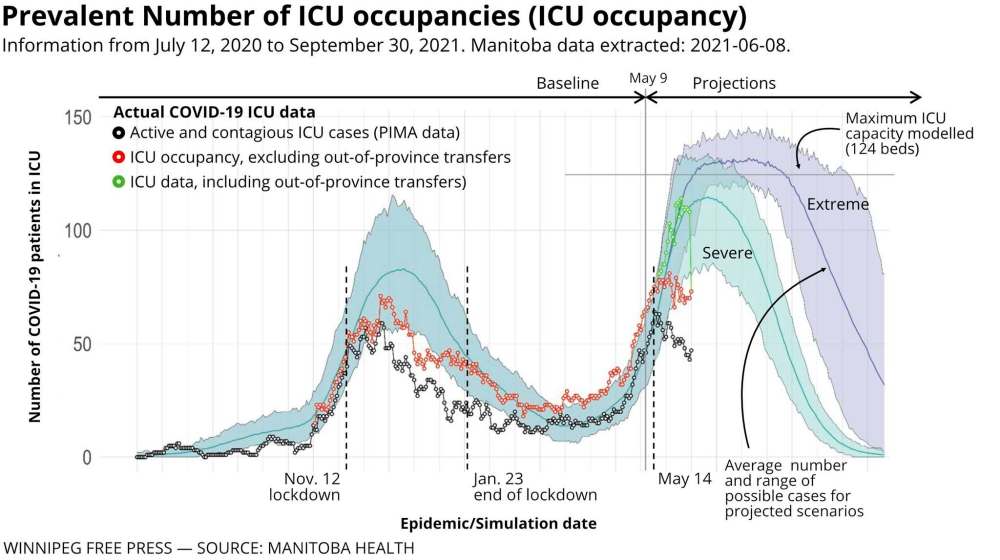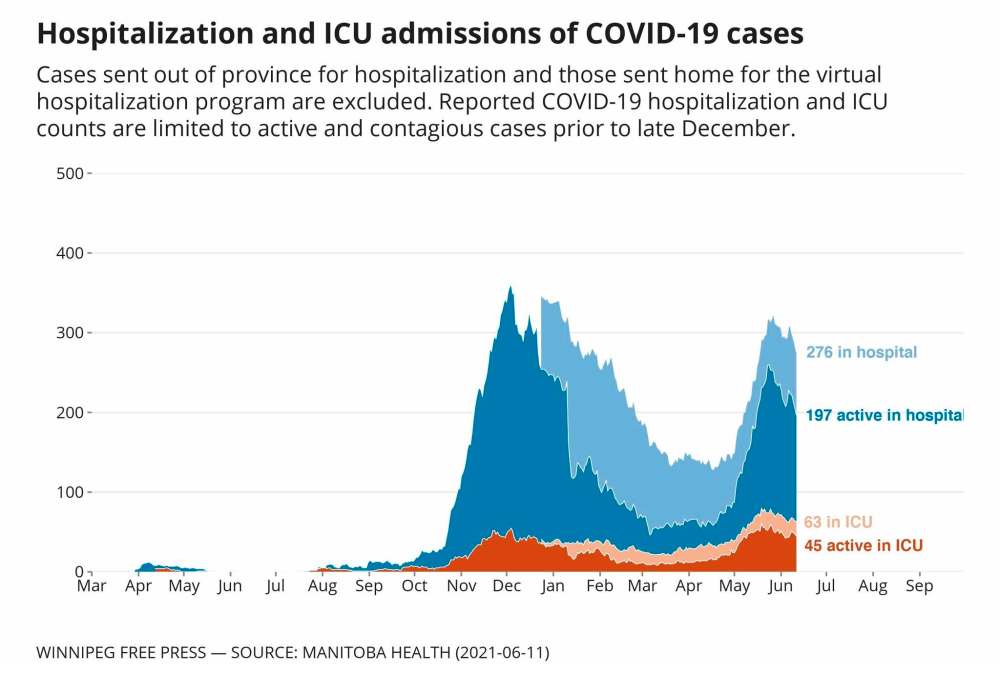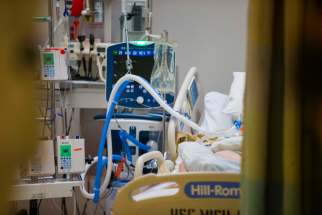ICU admissions to remain ‘severe’ in near-future: Atwal
Read this article for free:
or
Already have an account? Log in here »
To continue reading, please subscribe:
Monthly Digital Subscription
$0 for the first 4 weeks*
- Enjoy unlimited reading on winnipegfreepress.com
- Read the E-Edition, our digital replica newspaper
- Access News Break, our award-winning app
- Play interactive puzzles
*No charge for 4 weeks then price increases to the regular rate of $19.00 plus GST every four weeks. Offer available to new and qualified returning subscribers only. Cancel any time.
Monthly Digital Subscription
$4.75/week*
- Enjoy unlimited reading on winnipegfreepress.com
- Read the E-Edition, our digital replica newspaper
- Access News Break, our award-winning app
- Play interactive puzzles
*Billed as $19 plus GST every four weeks. Cancel any time.
To continue reading, please subscribe:
Add Free Press access to your Brandon Sun subscription for only an additional
$1 for the first 4 weeks*
*Your next subscription payment will increase by $1.00 and you will be charged $16.99 plus GST for four weeks. After four weeks, your payment will increase to $23.99 plus GST every four weeks.
Read unlimited articles for free today:
or
Already have an account? Log in here »
Hey there, time traveller!
This article was published 11/06/2021 (1640 days ago), so information in it may no longer be current.
COVID-19 hospitalizations in Manitoba are expected to remain unsustainably high for several weeks, government projections show.
New provincial modelling data released Friday show intensive-care admissions could stay at severe levels for some time — even without taking into consideration the impact of novel coronavirus variants that are more contagious and could make patients sicker.
However, case counts and testing volumes are on the decline, indicating diminished spread of the virus, prompting the province to unveil its reopening plan, deputy chief provincial public health officer Dr. Jazz Atwal said Friday.
Atwal said public health officials are still learning how more-infectious variants such as the B.1617 Delta variant and P.1 Gamma variant will affect Manitoba’s infection and hospitalization rates. The modelling data doesn’t account for those variants, but upcoming projections will, he said.
Early studies have shown just one dose of COVID-19 vaccine is less effective against those variants, but Atwal said with two doses, Manitobans are still likely to “win the race.”
“The current models show us in a moderate position on transmission and a severe position on the ICU prevalence, and that is without factoring in the Gamma and Delta variants. This is critically important,” he said during Friday’s news conference.
“We know that the Delta variant in particular has the potential to be more transmissible and has more severe impacts in relation to hospitalizations and ICUs; this means that we must continue to watch the Delta variant carefully to make sure we are aware of the possible impacts of this variant in Manitoba,”
On Friday, the province announced 223 new COVID-19 cases and two additional deaths: both Winnipeg women, one in her 80s and one in her 90s.“The current models show us in a moderate position on transmission and a severe position on the ICU prevalence, and that is without factoring in the Gamma and Delta variants. This is critically important.” — Dr. Jazz Atwal, deputy chief provincial public health officer
Test-positivity rates were at 11 per cent in Winnipeg and 10.6 per cent provincewide.
Although case counts are expected to drop by 20 per cent each week for at least the next three weeks, the number of Manitobans landing in ICUs is still dire, Atwal said.
There were 93 Manitobans in ICUs as of Friday morning (30 of them being treated out of province). In the third wave, Manitoba has airlifted 57 patients to hospitals in Ontario, Saskatchewan and Alberta. Four have died out of province; one died after an attempted transport.
“In the past few days, the overall number of people in ICU seems to have stabilized, however, it’s still an extremely high number and it isn’t sustainable,” Atwal said.
He said he’s hoping to see ICU admissions drop by 10 per cent on a weekly basis, if case counts fall accordingly.
No one who’s been fully vaccinated had to be admitted to ICUs in the first week of June.
Atwal said of 151 patients admitted to hospital June 1-6, 80 per cent hadn’t been vaccinated or it had been less than two weeks after their first dose.
Only 2.6 per cent of hospital admissions were for people who’d had both vaccine doses, Atwal said.
To prepare for a possible fourth wave of the pandemic, Atwal said Manitoba has increased testing capacity, contact tracing and alternative isolation space, and is trying to get vaccines to remote areas quicker.
The major limitation is a lack of acute care staff; Atwal said the work to increase staffing complements is ongoing.
“They’re tired right now, I know, but there’s a lot of work being done — has been done, is being done, is going to continue to happen over the next few months to keep building that capacity” in hospitals and ICUs, he said.
“We need to develop more personnel to be able to work in the acute care system to be able to manage not only COVID, but everything else that happens,” Atwal added.
katie.may@freepress.mb.ca
Twitter: @thatkatiemay

Katie May is a general-assignment reporter for the Free Press.
Our newsroom depends on a growing audience of readers to power our journalism. If you are not a paid reader, please consider becoming a subscriber.
Our newsroom depends on its audience of readers to power our journalism. Thank you for your support.









